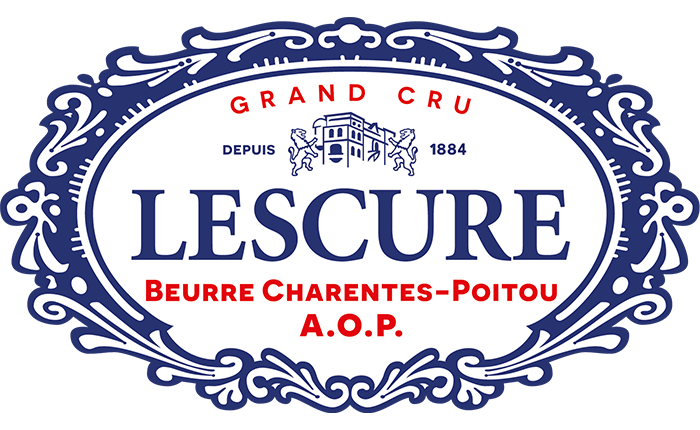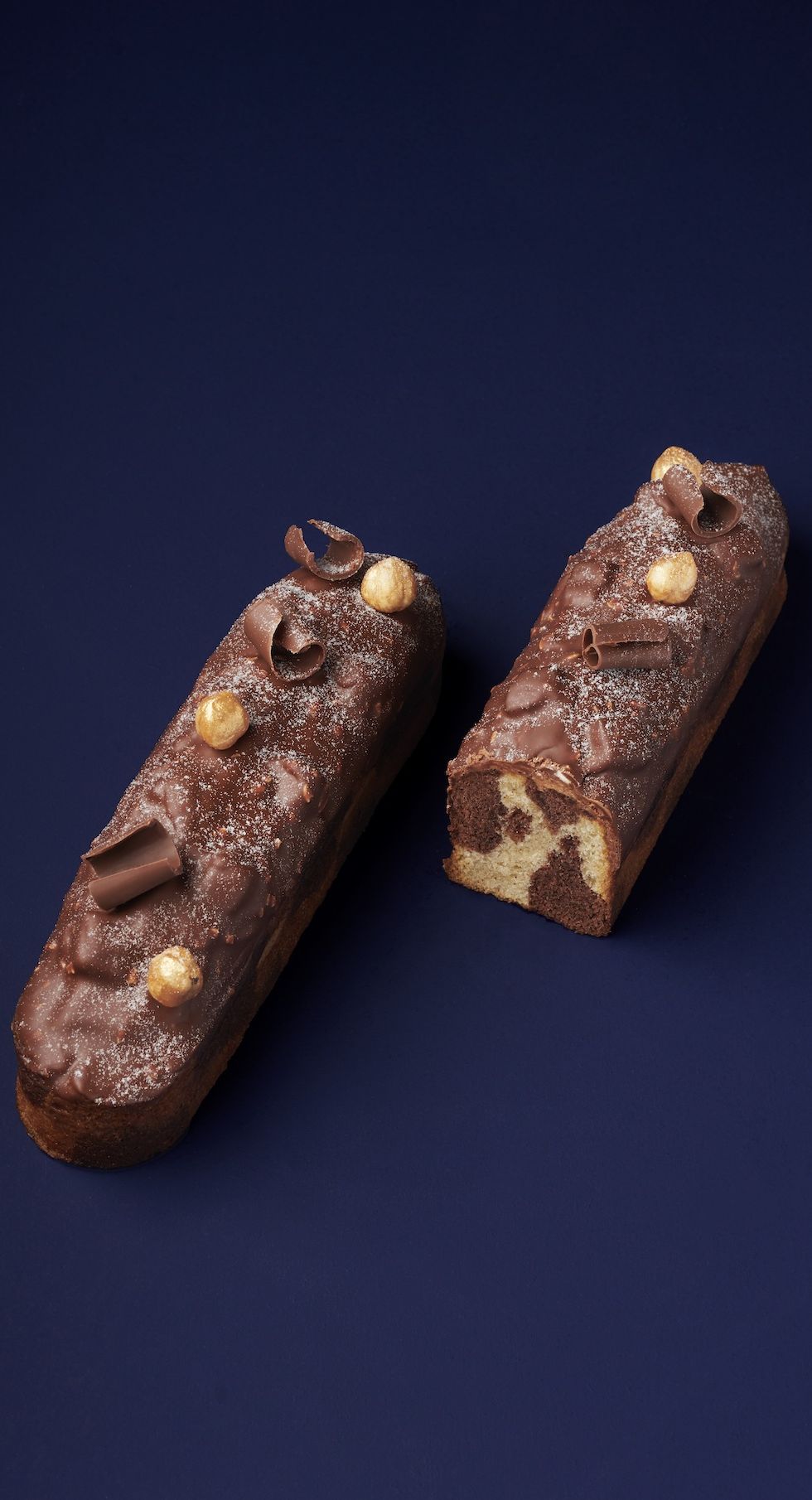Recipe Marble Cake
To make this dish
Ingredient list
-
Cocoa & vanilla marble cake batters141 g Lescure Unsalted 250g butter Roll 82% fat
610 g sugar
197 g eggs
6 g salt
413 g Lescure UHT Cream 35% fat
441 g plain flour (T55, approximately 11% protein)
11 g baking powder
141 g liquid clarified butter
4 g vanilla powder
38 g cacao powder
2000 g total weight
-
Vanilla rum soaking syrup154 g water
154 g sugar
SQ vanilla extract with seeds
92 g dark rum
400 g total weight
-
Fluffy praliné200 g crunchy almond hazelnut praliné 50%
70 g Lescure Unsalted 250g butter Roll 82% fat
70 g milk chocolate 40%
5 g orange zest
20 g Grand Marnier® (optional)
365 g total weight
-
Almond cream cheese streusel106 g Lescure Unsalted 250g butter Roll 82% fat
44 g cream cheese
139 g plain flour (T55, approximately 11% protein)
150 g brown sugar
150 g finely ground almonds
2,22 g sea salt
591 g total weight
500 g total weight after reduction
-
Milk chocolate oat dipping mixture75 g oat flake
25 g water
50 g sugar
500 g milk chocolate 46%
125 g cocoa butter
25 g grape seed oil
800 g total weight
-
Marble Cake finishing touchesSQ Lescure Unsalted 250g butter Roll 82% fat
SQ shelled hazelnuts
SQ glittering gold
SQ decorative icing sugar
SQ black gianduja
The recipe, step by step
-
01
Cocoa & vanilla marble cake batters
Process the butter, sugar and salt together in a food processor.
Gradually add the room-temperature eggs then add the sifted together flour and baking powder.
Add the room-temperature cream and clarified butter, mixing to obtain a smooth batter (around 30°C).
Divide the cake batter into two (approximately 650 g).
Add the vanilla powder to the first half, blend using a hand mixer and set aside.
Add the sifted cocoa powder to the second half, blend and set aside.
Refrigerate the two mixtures for at least 4 hours (ideally overnight).
-
02
Vanilla rum soaking syrup
Boil the water and sugar.
Add the vanilla extract and the dark rum then set aside.
-
03
Fluffy praliné
Whip the softened butter with the praliné, Grand Marnier and orange zest.
Add the melted milk chocolate at 35°C.
-
04
Almond cream cheese streusel
Combine all ingredients using the paddle attachment of the stand mixer.
-
05
Milk chocolate oat dipping mixture
Prepare a syrup with the water and sugar.
Cook to 117°C.
Stir in the rolled oats and cook until the sugar crystallizes.
Transfer to a sheet of baking paper and let cool.
Melt the milk chocolate then add the melted cocoa butter and grapeseed oil.
Stir to combine and add the sables rolled oats.
-
06
Marble Cake finishing touches
Spread the almond hazelnut cream cheese streusel to a thickness of 8 mm and place in the refrigerator.
Cut into cubes.
Bake on Silpain mats in a 140°C convection oven for approximately 20 minutes and let cool.
Butter the Matfer Exoglass moulds (345079) with softened butter, flour lightly and place in the refrigerator.
Using a plain 15 mm tip, pipe out alternating dollops of the two cake batters (100 g of each).
Split the cakes in two using a pastry scraper dipped in melted butter.
Place the moulds on a rack (for even colouring) in a convection oven preheated to 190°C, then bake at 160°C (damper closed) for approximately 30 minutes.
Remove from the oven and unmould immediately.
Imbibe each cake with 35 g of syrup then let cool.
Pipe out 30 g of praliné mousse on top of each cake.
Smooth into a dome using a palette knife.
Stick on the streusel cubes and place in the freezer.
Dip the tops of the cakes in the milky oat mixture.
Sprinkle with decorative snow sugar and decorate with a few gold-dusted hazelnuts and gianduja curls (made using a vegetable peeler).
For even, symmetrical development, place the moulds perpendicularly to the fan and turn the rack around halfway through.



 Lescure Unsalted 250g butter Roll 82% fat
Lescure Unsalted 250g butter Roll 82% fat
 Lescure UHT Cream 35% fat
Lescure UHT Cream 35% fat